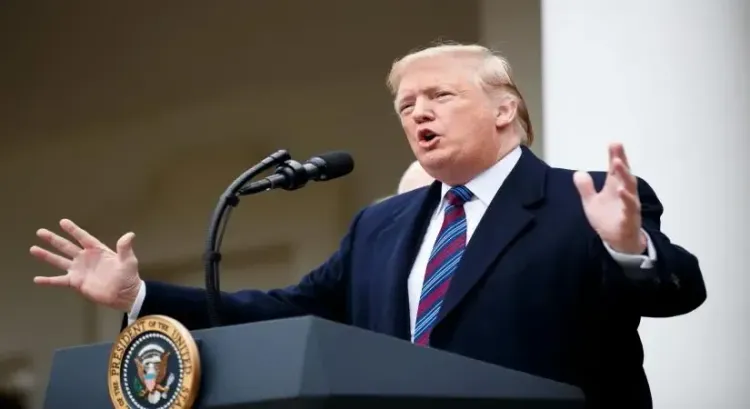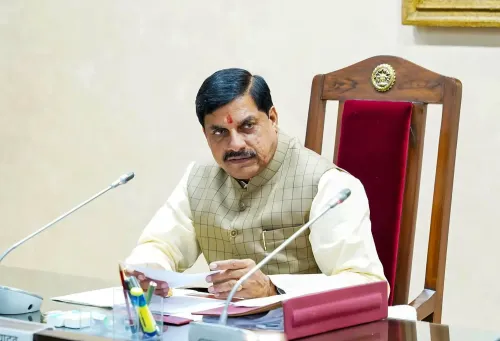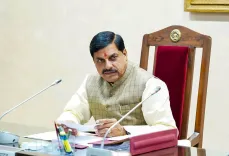Will Trump Increase Tariffs on India for Buying Russian Oil?

Synopsis
Key Takeaways
- Trump warns of higher tariffs on India for buying Russian oil.
- India's External Affairs Ministry critiques the double standards.
- Trade tensions may affect global oil prices.
- US-India trade reached $128.9 billion last year.
- China and other nations also engaged in buying Russian oil.
Washington/New York, Aug 5 (NationPress) US President Donald Trump issued a warning this Tuesday morning that he plans to implement increased tariffs on India within the next 24 hours due to the nation purchasing Russian oil and exporting products overseas, despite his claims that New Delhi is set to introduce zero tariffs.
Last week, Trump announced a 25% tariff on India and mentioned to CNBC, "I believe I will significantly raise that in the next 24 hours because of their Russian oil purchases."
"India has shifted from imposing the highest tariffs ever to offering us zero tariffs, and they can enter, but that isn't sufficient due to their actions with oil—it's not good," he stated.
No details were provided by Trump regarding the potential tariff on India related to Russian oil.
He appeared to target India specifically, even though countries like China, Turkey, and the European Union are also buying Russian oil, asserting that India is profiting from reselling products made with it.
The External Affairs Ministry of India pointed out the double standards, labeling Trump's threats as "unjustified and unreasonable."
Trade between the EU and Russia was valued at $67.5 billion last year, and the US continues to import various materials from Russia, including uranium hexafluoride for the nuclear sector and palladium for electric vehicles, as noted by the ministry.
"In this context, targeting India is both unjustified and unreasonable," the ministry added.
However, it remained silent on China's oil purchases from Russia.
Trump also hinted at a forthcoming trade deal with China, stating it would be ready "very soon."
India has found itself caught between Trump and Russian President Vladimir Putin, who has ignored Trump's calls to cease the Ukraine War.
For Trump, India represents a significant pressure point as it is the largest buyer of Russian oil, comprising 70% of its exports.
Trump remarked about India, "They're fueling the war machine. If they're going to do that, then I'm not going to be pleased."
When asked by a CNBC interviewer about potential global price increases if India, the world's third-largest oil importer, were to enter the open market, Trump responded, "I'm not concerned about prices because we are drilling at unprecedented levels."
Additionally, Trump mentioned his plans to introduce special tariffs on pharmaceuticals, which could reach up to 200% over the next two years.
Pharmaceuticals represent the largest segment of Indian exports to the US, amounting to nearly $8.7 billion.
When questioned about the sticking point in the seemingly impending trade deal with India, Trump replied, "The issue with India is that their tariffs are excessively high."
"They impose the highest tariffs of any country. Our business dealings with India are minimal due to their elevated tariffs," he said.
According to the US Trade Representative, trade in goods between India and the US reached $128.9 billion last year, with US imports to India growing by 3% to $41.5 billion and India's exports climbing 4.5% to $87.3 billion, resulting in a goods trade deficit of $45.8 billion with India.
In response to Trump's announcement regarding higher tariffs on India, Russia stated that his efforts to compel countries to sever trade relations are not legitimate.
Kremlin spokesperson Dmitry Peskov asserted, "We believe that sovereign nations should have the right to determine their own trade partners and engage in economic cooperation."
Before Trump's specific threats to India, China’s Foreign Ministry stated on X that "China will always secure its energy supply in ways that align with our national interests."









